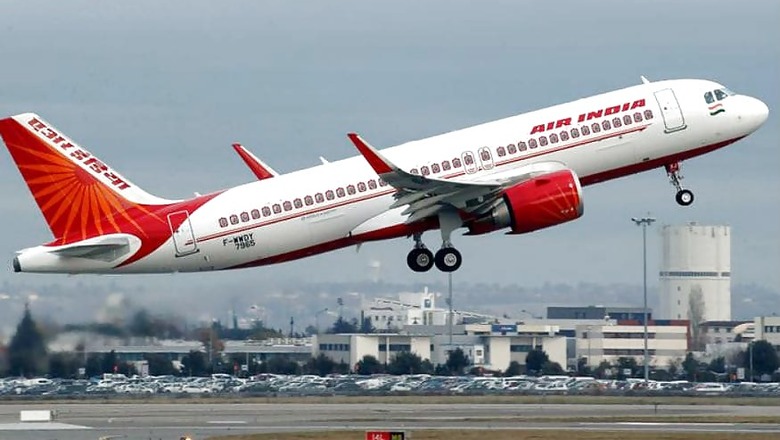
views
New Delhi: After finding no takers for a stake sale in national carrier Air India, the Centre is set to come up with new guidelines in an attempt to find potential investors.
According to a report by Bloomberg, Prime Minister Narendra Modi’s administration is ready to “re-examine” its privatisation process, including the clause requiring a minority state stake in Air India Ltd., said Subhash Chandra Garg, a senior official in the Ministry of Finance.
“The government is considering various options and doesn’t intend to insist on keeping 24 per cent of the company,” he said.
“A certain kind of strategy was offered that didn’t find many takers, and therefore, something different will have to be done,” economic affairs Secretary Garg said in an interview to Bloomberg in New Delhi on Monday.
“There’s no fixed objective that government should have 24 percent. It can be re-examined.”
The Ministry of Civil Aviation received close to 160 queries from potential buyers of Air India. However, none of them translated into an Expression of Interest (EoI) for the 'Maharaja'.
The reasons were multiple, majorly being that the airline could not be pulled out of the debt gut despite its diversified air-coverage network and long-term loyal employee strength.
Potential bidders were further put off by the Centre’s decision to retain 24 per cent stake in the company, thus creating confusion over employee retention and hiring policy.
Experts also point to the requirement for buyers to retain the Air India brand for a specified period going against the government’s virtual marketing strategy.
Multiple news reports are suggesting that higher costs are resulting in a crunch wherein the domestic carrier has delayed salary payments and is raising tariffs to make ends meet.
Needless to say, higher tariffs will hit load factors or capacity utilisation. In such a backdrop, the last thing on anyone’s mind would be to make a large acquisition.
Crude oil prices have risen 14% in the last two months, taking the total price increase in the past year to around 50%. With no signs of a correction anytime soon, airline stocks have fallen.
Shares of Jet Airways (India) Ltd, the closest comparable for Air India, have halved this year and have fallen by about a third since the government invited EoIs for Air India. Last year, fuel accounted for 29% of total cost for Jet Airways, a full-service airline and 39% of total costs for IndiGo, a low-cost airline.
Experts estimate that the asset is being valued at over 10 times earnings on an EV/EBITDAR basis, even without ascribing any equity value. This was when other airlines were valued at 7-8 times their FY-17 earnings.
EBITDAR stands for earnings before interest, tax, depreciation, amortisation and lease rentals. EV, or enterprise value, includes the present value of future rentals, using a capitalization factor of seven times FY-17 rentals.















Comments
0 comment